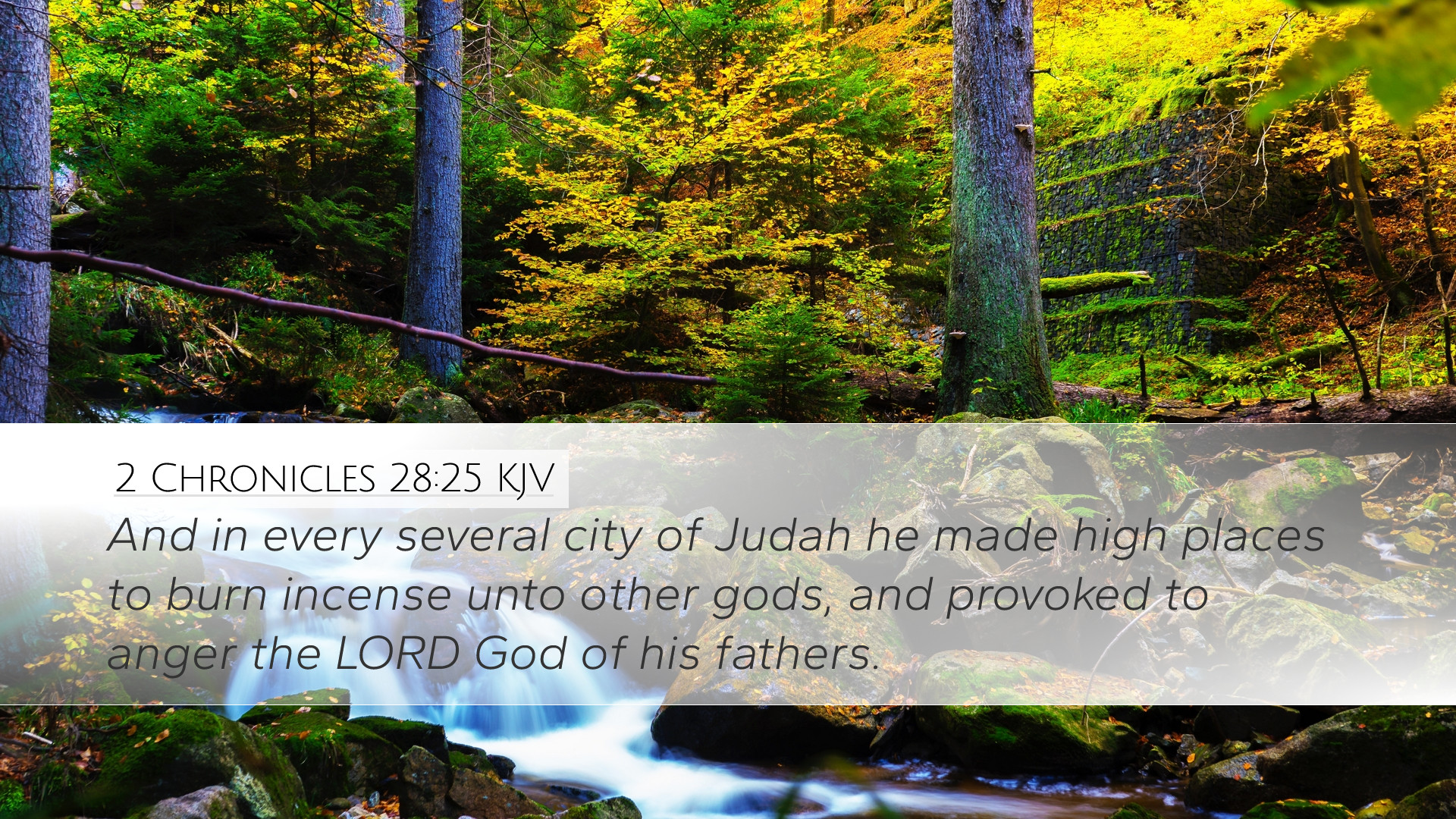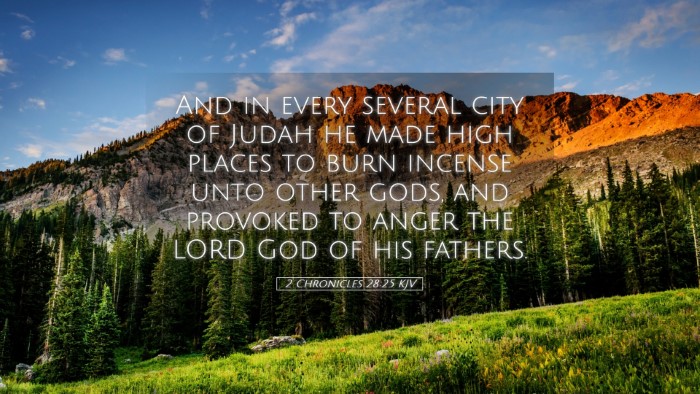Commentary on 2 Chronicles 28:25
Verse Text: "And in every city of Judah he made high places to burn incense unto other gods, and provoked to anger the LORD God of his fathers."
Contextual Overview
The reign of Ahaz as king of Judah is marked by significant idolatry and disobedience to God.
This verse highlights the actions of Ahaz that led to the spiritual decline of the nation.
In 2 Chronicles, the chronicler often emphasizes the faithfulness of God contrasted with the unfaithfulness of His people.
Insights from Matthew Henry
According to Matthew Henry, this passage illustrates the severe consequences of Ahaz's idolatry.
Ahaz was an example of a ruler who turned away from God, embodying a clear pattern seen throughout Israel's history—where leadership influences the public's spiritual condition.
Henry notes that the high places mentioned were not merely sites of worship; they were sites of sin,
leading the people of Judah away from Yahweh. Ahaz's actions provoked God's anger, demonstrating how the people are often affected by their leaders' actions.
He emphasizes the importance of choosing leaders who fear God to avoid the pitfalls of idol worship and rebellion.
Insights from Albert Barnes
Albert Barnes provides a historical perspective on Ahaz's reign. He comments on the political turmoil
that Ahaz faced, including conflict with Israel and Syria, and his dependence on Assyria for aid.
Barnes points out that this dependence led to the further degradation of true worship, as Ahaz adopted their pagan practices.
Further, Barnes suggests that the creation of high places was a direct affront to God's established order of worship in Jerusalem.
He writes that despite the dangers of syncretism, Ahaz's actions reflect the tendency for people to mix worship styles,
disregarding the pure form worship as intended by God.
Insights from Adam Clarke
Adam Clarke provides a rich theological analysis of this verse, emphasizing the gravity of Ahaz's sin.
He elaborates on the high places as symbolic of rebellion against the commandments of God.
Clarke notes that Ahaz’s idolatry served not only to provoke God’s anger but also to lead the people into further sinfulness.
Clarke goes on to argue that idolatry, specifically the burning of incense to other gods, was indicative of a deeper spiritual malaise within the nation of Judah.
He correlates this with the consequences outlined in the Law, where turning away from Yahweh invites judgment.
He warns against neglecting true worship and highlights that such neglect can have both personal and communal ramifications.
Application for Today
The passage poses significant questions for contemporary readers, especially church leaders and theologians.
In a modern context, the temptations to blend cultural practices with faith can dilute the purity of worship and compromise one’s relationship with God.
Pastors are challenged to ensure that their leadership encourages faithfulness to biblical truths rather than conforming to popular trends that may lead believers away from sound doctrine.
Conclusion
2 Chronicles 28:25 serves as a stark reminder of the consequences of turning away from God and embracing practices that are contrary to His commandments.
The commentaries from Henry, Barnes, and Clarke collectively encourage the church to reflect on its practices, ensuring alignment with the teachings of Scripture.
As believers, there is a continual need to confront and cast aside anything that could be seen as idolatrous worship, seeking to elevate the name of the Lord above all.


